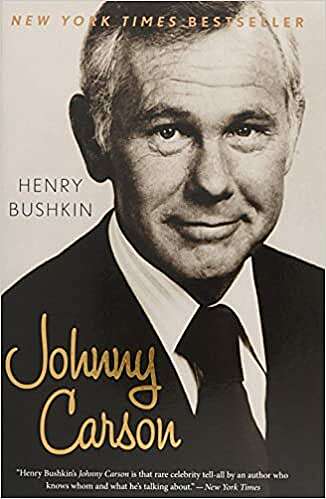
My highlights from this book:
1. Johnny was comfortable in front of twenty million but uncomfortable in a gathering of twenty.
2. He had too keen an appreciation for how much work and talent and discipline went into success to be flattered by praise and adulation
3. Johnny Carson performed on television, but he didn’t watch it.
4. Carson’s show was earning NBC between $50 and $60 million a year.
5. “Look what’s going on,” I said. “His wife is cheating on him. His manager is screwing him, his agents are exploiting him, and his producer’s wife has been conspiring with Joanne to cuckold him. What a goddamn mess.”
6. Being a star in Hollywood was a fabulous thing, but the real money and power went to those who owned the companies that produced the programs. It was Aaron Spelling who called the shots and raked in the dough and lived like the sultan of Brunei. Or to put it another way, Merv Griffin, who was a rival of Carson’s but never his peer, was so much richer than Johnny because he owned the game shows Jeopardy! and Wheel of Fortune.
7. He has probably been funnier longer and more consistently than any other comedian who ever lived. Johnny just kept rolling on and on, never deviating, seldom surprising, seldom surpassing, but nearly always delivering.
8. He often told me that all it took to turn the most electrifying film stars into dullards was to be around them for a while. But he felt that way around everybody. There were very few social scenes in which he was ever really comfortable.
9. Like most oracles, Wasserman gave an opinion that was simple and sensible (but unambiguously presented, thank goodness). “It is not prudent,” replied Wasserman, “to ask people to change their nightly viewing habits. Once they are used to tuning in a given channel, they find it hard to make the move, no matter how good an alternative is being provided elsewhere.” Was that it? All of our thinking and talking and arguing and agonizing came down to the belief that Americans won’t change the dial? Wasserman’s advice sealed our decision.
10. Once he got control of The Tonight Show he was earning so much that it was like Monopoly money. He was free to do literally whatever he wanted.
Learn from history's greatest entrepreneurs by listening to Founders. Every week I read a biography of an entrepreneur and find ideas you can use in your work.